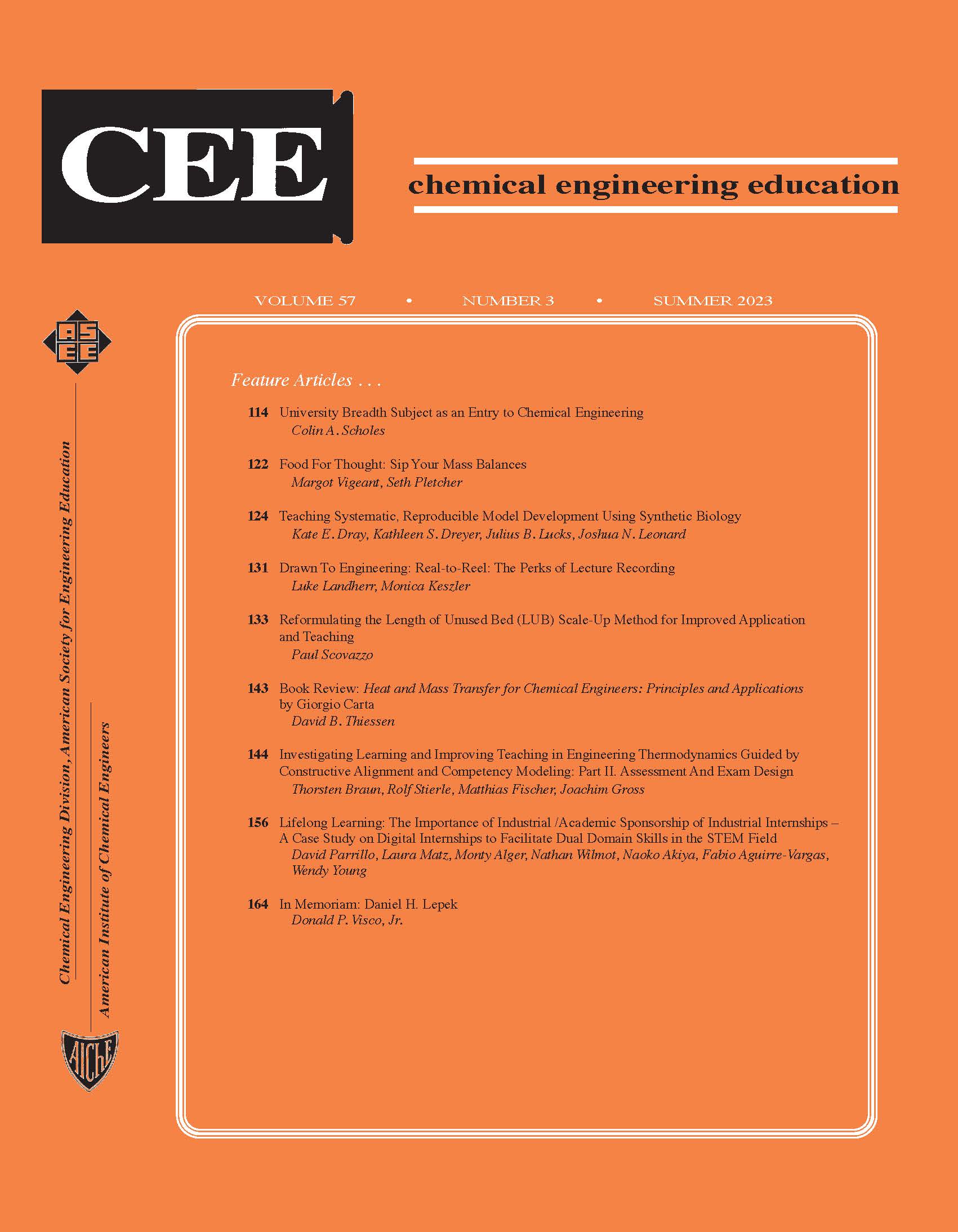Investigating Learning and Improving Teaching in Engineering Thermodynamics Guided by Constructive Alignment and Competency Modeling
Part II. Assessment and Exam Design
DOI:
https://doi.org/10.18260/2-1-370.660-133030Abstract
Contributing to a competency model for engineering thermodynamics, we investigate the empirical competency structure of our exams in an attempt to answer the question: Do we test the competencies we want to convey to our students? We demonstrate that thermodynamic modeling and mathematical solution emerge as significant dimensions of thermodynamic competency. Furthermore, we show how we were able to improve exam quality and raise our awareness about what actually makes exam tasks easy or difficult.


